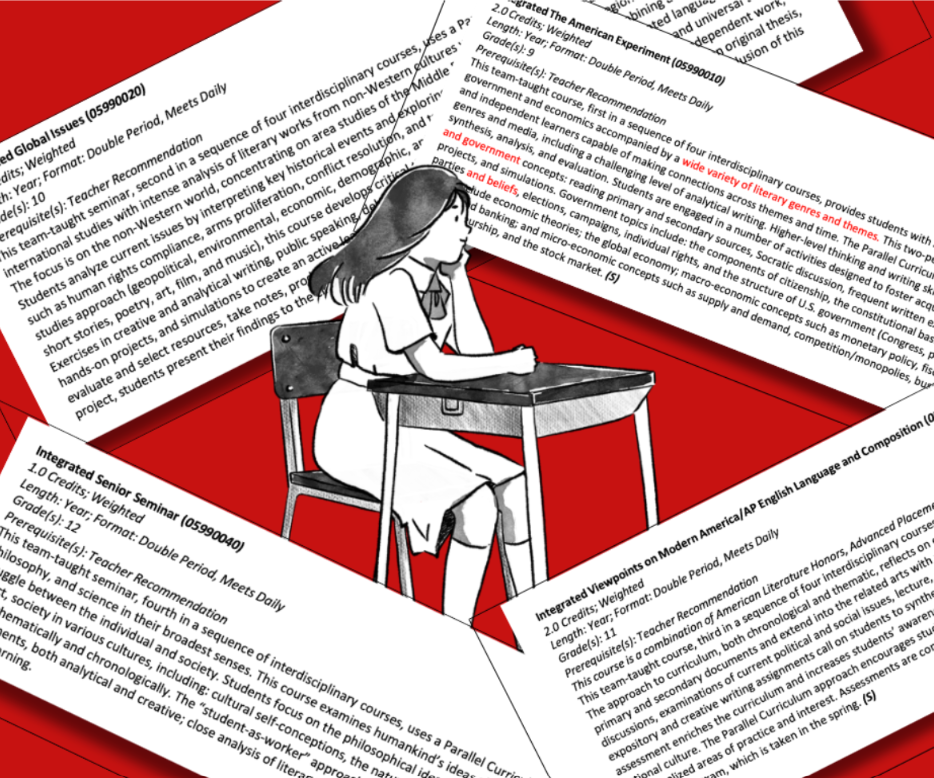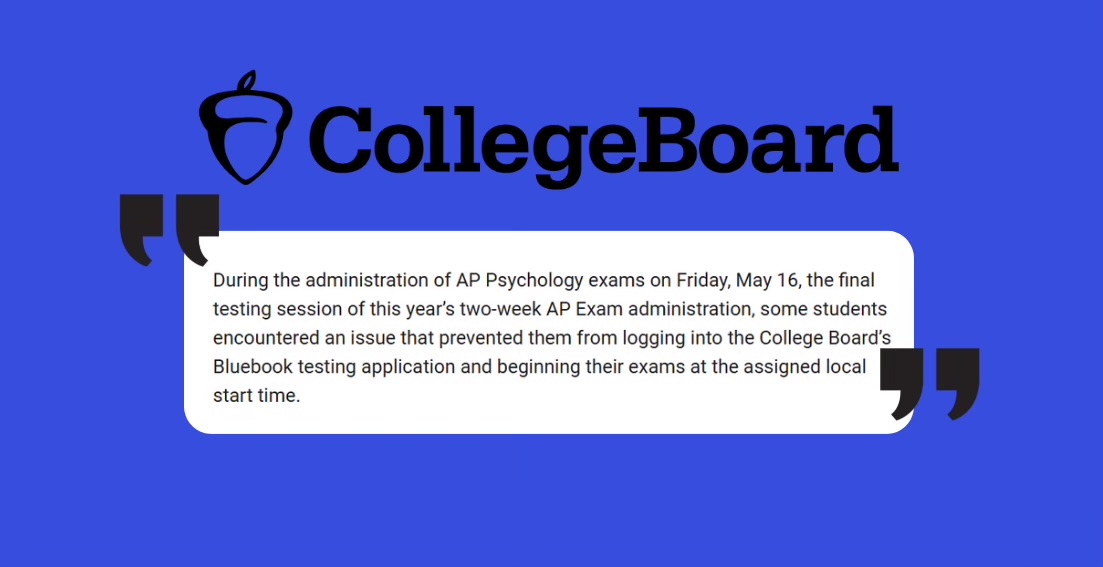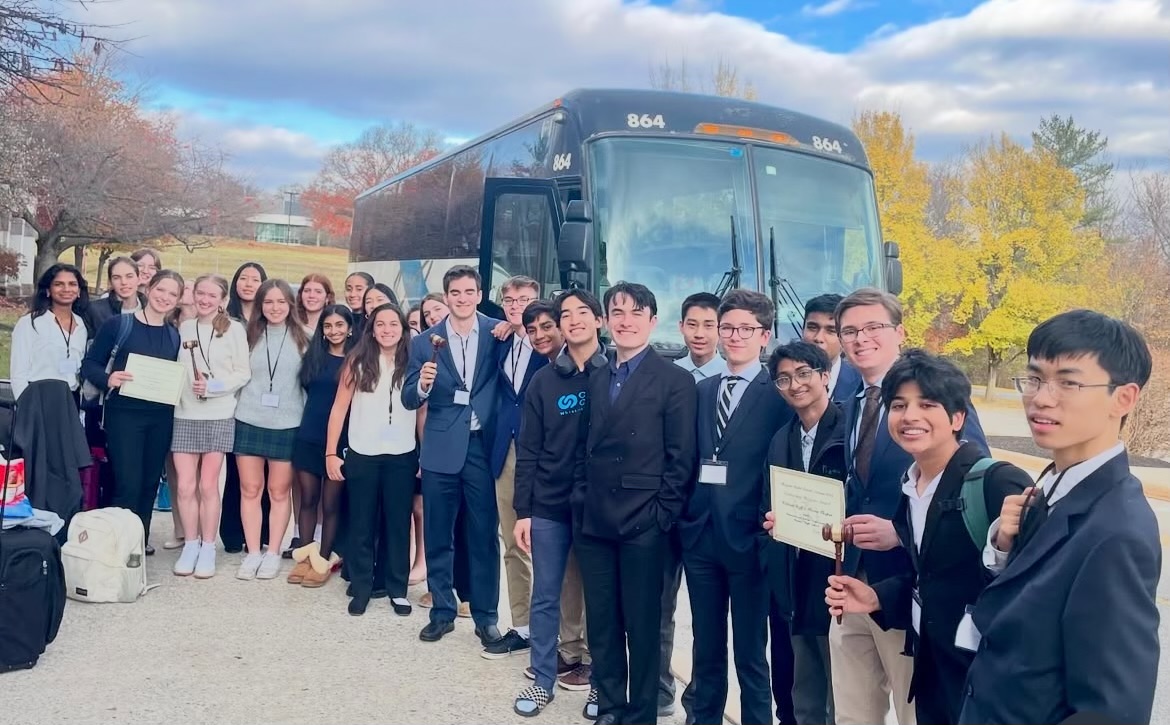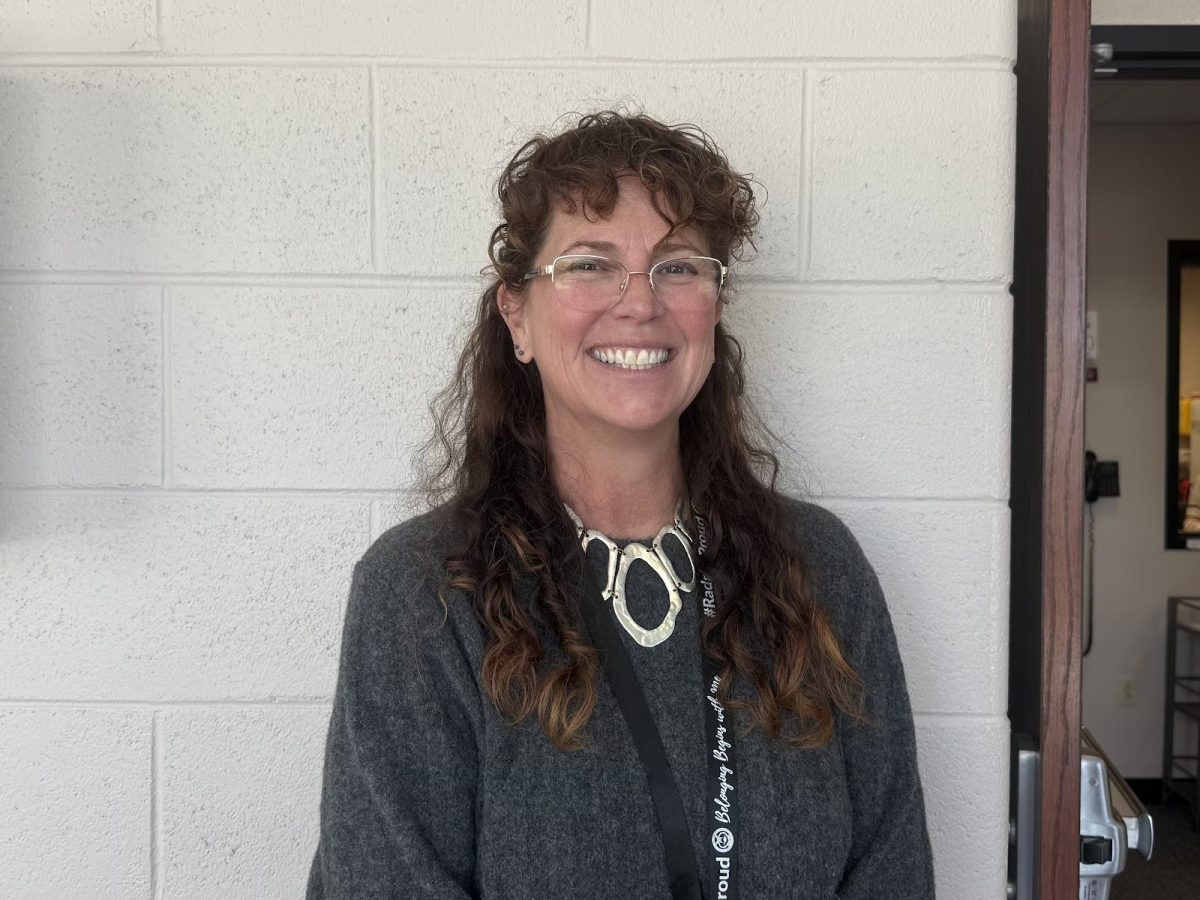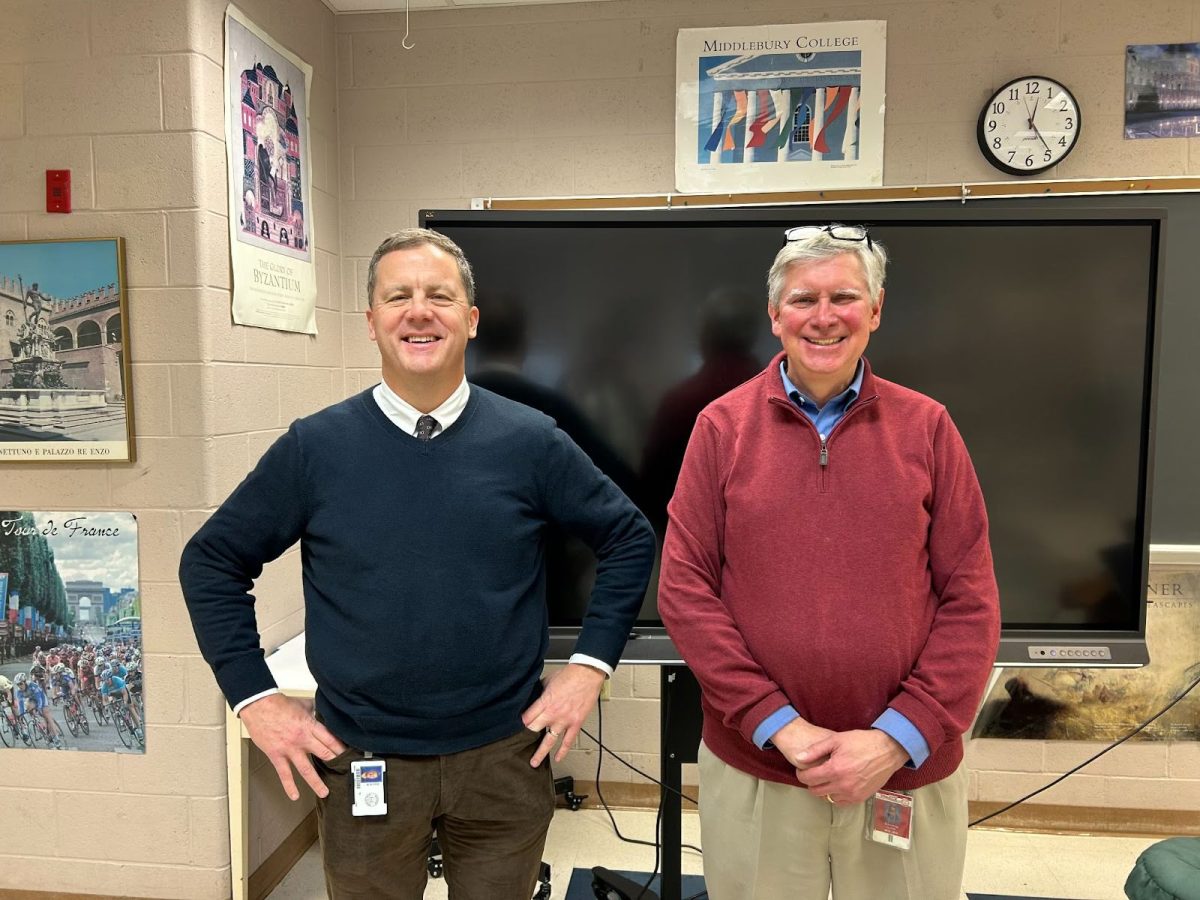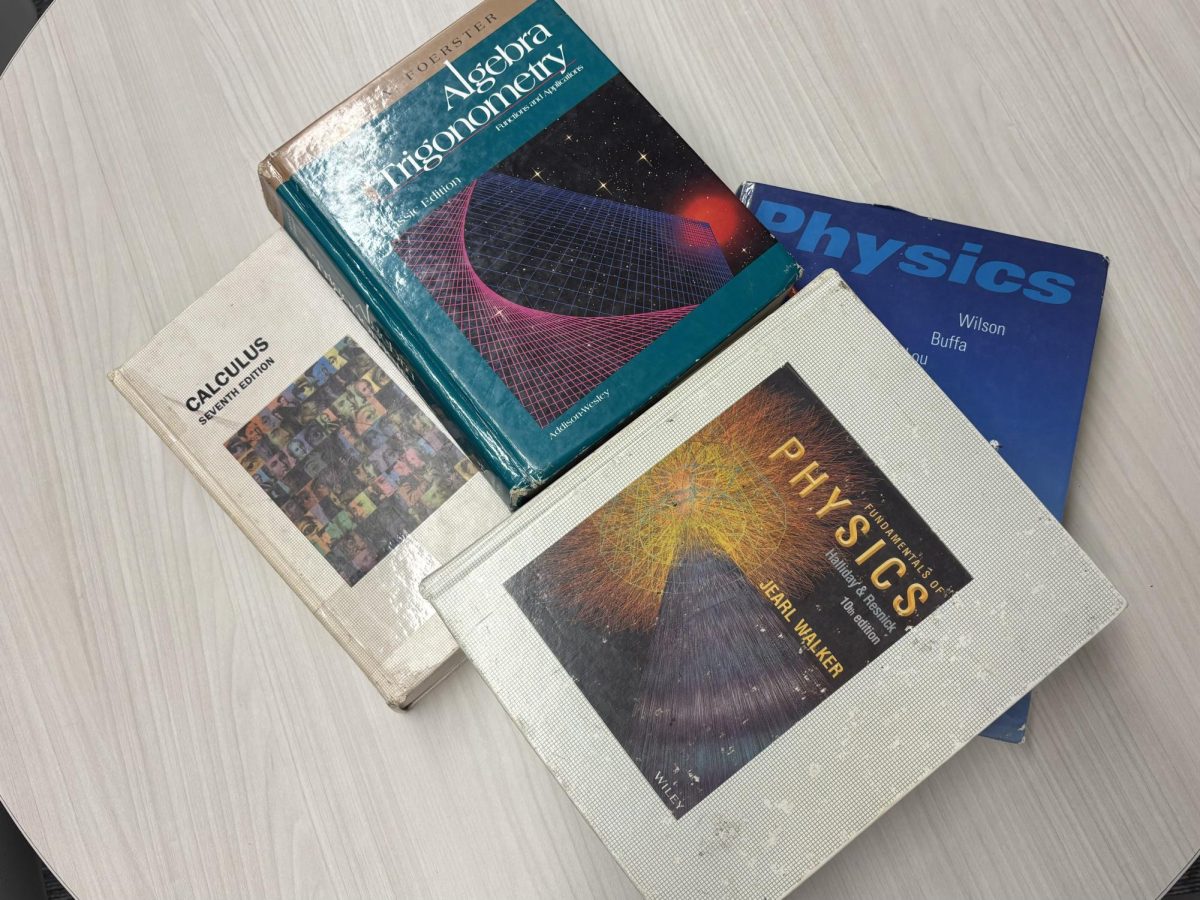Radnor’s integrated courses, featuring a combined approach to English and social studies, are highly unique; they are interdisciplinary, aiming to create connections between academic subjects and expand students’ intellectual horizons. Created in the early 90s solely for gifted-identified students, integrated classes have become a cornerstone of Radnor’s honors curriculum. Traditionally, four integrated sections run at RHS per school year – The American Experiment for freshmen, Global Issues for sophomores, Viewpoints for juniors, and Senior Seminar for seniors. But this school year, only Senior Seminar attained the student demand required for it to run.
Last June, to gain insight into this dip in interest, school administrators conducted a survey of freshman, sophomores and juniors who had taken integrated as opposed to traditional classes that school year. The results were presented to the Curriculum Committee of the school board on October 17th, 2023, and they highlighted many of the reasons students chose to forgo integrated courses for the 2023-24 school year.
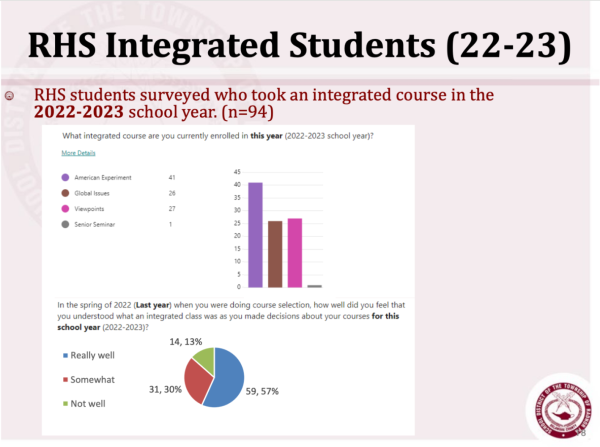
The most common reason RHS students opted for traditional English and social studies classes is that they simply did not find the courses interesting; many other students felt that Advanced Placement courses, which enjoy a widespread reputation for rigor, would serve them better in the college admissions process.
Out of 649 respondents, only 49 reported that they would consider taking an integrated course in the future. Among those who experienced integrated classes themselves in the 2022-23 school year, the overwhelming majority believed that the workload and difficulty of their classes were just right, with engaging lessons and adequate pacing. But the most striking statistic was this; almost half of the surveyed students reported infrequent co-teaching in their integrated class (though there is no way to tell which courses these students were enrolled in).
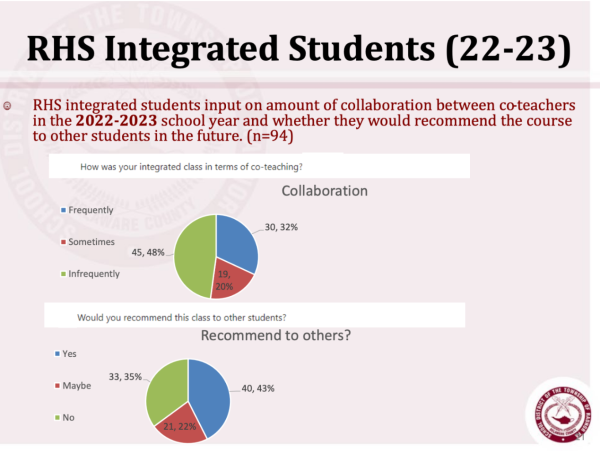
Now equipped with valuable insight into students’ perspectives on the program, teachers, administrators and school board members have committed to reviving the integrated courses for underclassmen. During the January 16th meeting of the Curriculum Committee, Dr. MacNamara explained the steps that have been taken to understand the loss of student interest in and improve the demand for integrated programming.
After the survey data from last June was analyzed, administrators began to gather more specific feedback from students and faculty at RHS. In November, voluntary student focus groups gave past integrated participants the chance to share their experiences; by December, teachers were also given avenues to express their point of view. A few key ideas were stressed by members of these focus groups, such as the necessity of teacher collaboration and incorporation of class content, better marketing of integrated courses, the benefits of smaller class sizes, and the importance of the physical setting (students particularly disliked learning in the Black Box).
Dr. MacNamara then outlined a plan to bring back integrated programs for underclassmen. A key point of this plan is to help integrated teachers navigate the challenge of running a course together, by providing them additional training and time to prepare over the summer. Dr. MacNamara further stressed the importance of prioritizing “long-term partnerships with co-teachers whenever possible.”
This plan also targets the needs of students, suggesting a twice-yearly schedule of gathering feedback from members of integrated courses – this way, when concerns arise, they can be addressed quickly, and a decrease in student demand for integrated classes can be prevented. Additionally, the RHS administration wants to explore the possibility of introducing an integrated course for freshmen at the Advanced level. Administrators want to open this program to those who may not be ready for honors-level work.
Increased awareness of the integrated program is a major component of the plan, as well. During these past few weeks of course selection, teachers visited the English and Social Studies courses of underclassmen in order to provide accurate information on what the integrated program entails.
Mr. Wright, a social studies teacher who has taught Senior Seminar, American Experiment and Viewpoints, said that students need to understand the rigor of integrated classes but not be deterred by the potential workload – those who are willing to “step up and work” can succeed.
“The world is interdisciplinary,” said Wright, and that is why he and many others believe that integrated courses are worth bringing back for 9th, 10th and 11th graders. Integrated classes are not necessarily bound by the strict curriculums of AP classes, so there is more freedom to make connections between topics and to the modern era.
Some students might assume that integrated classes do not carry the same weight on the transcript as Advanced Placement, but this is not true. “You’re not part of a super secret society that Wesleyan or Williams or West Virginia won’t understand in your transcript,” Mr. Wright explained – colleges are generally familiar with the specific programs offered by high schools and will understand the rigor of a Radnor integrated class. In fact, in order to solidify universities’ awareness of the integrated program, school counselors use the school profile sent to colleges to highlight their difficulty and demanding workload. And, when writing college recommendations, counselors will emphasize if a student has undergone the challenge of an integrated course.
The American Experiment, Global Issues, Viewpoints and Senior Seminar have been a special component of Radnor education for decades. These classes provide ambitious students the opportunity to explore literary and historical topics through a team-taught, seminar format. Potentially, if improvements are implemented and student interest in the program grows, all four integrated sections can run next year and into the foreseeable future.

